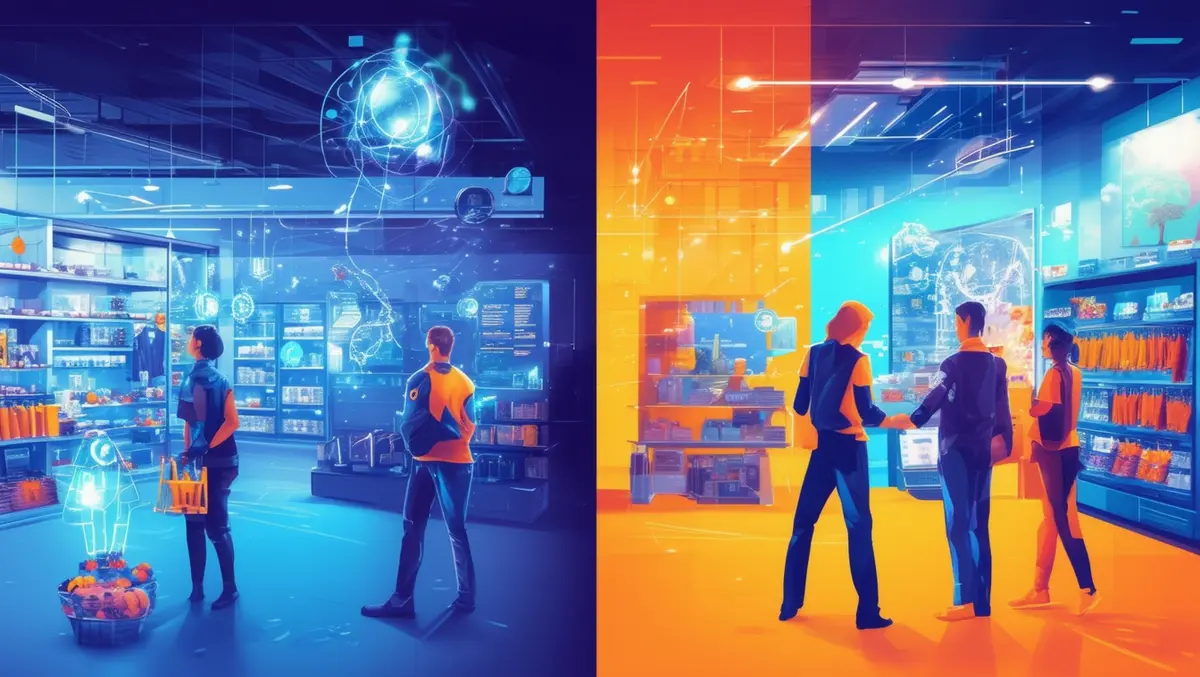
AI adoption in NZ retail lags behind Singapore & Australia
Research has highlighted a significant lag in artificial intelligence (AI) adoption among New Zealand's retail workforce compared to retail sectors in Australia and Singapore.
A survey conducted by UKG, which involved 213 New Zealand retail workers and managers, revealed that only 33% of respondents are currently using AI and automation in their workplace. This figure is starkly lower compared to Singapore, where 92% of retail workers report using AI, and Australia, where the adoption rate stands at 46%.
The usage of AI among the New Zealand workforce primarily enhances day-to-day experiences, with 64% of users noting improvements in customer sentiment analysis, 55% in automating scheduling, and 48% in automating staff management processes such as time and attendance and leave accruals.
Despite the low adoption rate, there is noticeable enthusiasm among New Zealand retail workers for the integration of AI. A majority of 77% expressed willingness to use AI should it enhance their working experience. The workers highlighted a desire for AI to improve staff management processes, with 67% citing this need, alongside 47% interested in customer sentiment analysis improvements and 44% in automating inventory management.
A part of the motivation for embracing AI and automation appears rooted in the overall trend for enhanced efficiency and streamlined work processes. There is a clear value placed on simplifying daily tasks through technology.
The research also identified various workplace challenges faced by New Zealand retail workers. About 37% reported feeling burnt out in their current roles. Key factors contributing to this sentiment include being understaffed (67%), poor management (63%), and a desire for higher salaries (62%).
Alex Catteau, Vice President of Sales in Australia and New Zealand at UKG, detailed the implications of the research findings. "Our research shows that retailers in New Zealand are drastically lagging behind their peers in Singapore and Australia," Catteau said. "The retail industry must embrace these technologies to assist their employees in providing the best service and meeting a business's strategic objectives."
He further highlighted the evolving retail demands and the technological landscape. "The retail demands of consumers are changing, as is the technological landscape in which retailers operate. AI adoption in retail across New Zealand can help businesses retain their talented workforce and therefore their competitive advantage."
The significant lag in AI adoption among New Zealand's retail workforce presents both a challenge and an opportunity for the industry. With a clear willingness among workers to embrace AI technologies, retailers can enhance operational efficiency, improve employee satisfaction, and better meet evolving consumer demands.
By prioritising the integration of AI and automation, New Zealand retailers can address critical workforce challenges, reduce burnout, and strengthen their competitive position in the market. As the retail landscape continues to evolve, leveraging AI will be essential for fostering a more resilient and agile workforce that can thrive in the face of future challenges.


